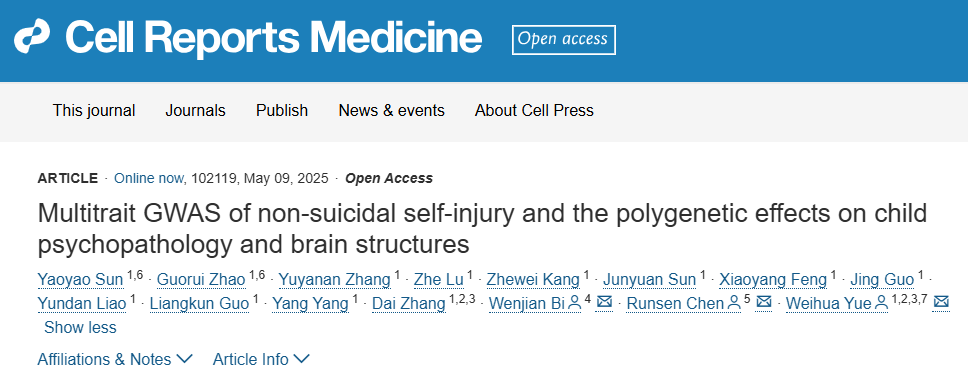Cell Reports Medicine | Prof. Weihua Yue: Multitrait GWAS of non-suicidal self-injury and the polygenetic effects on child psychopathology and brain structures

Summary
Non-suicidal self-injury (NSSI) is highly prevalent in recent years, but the genetic architecture remains unknown. We perform a multitrait analysis of genome-wide association study on NSSI, incorporating self-harm and suicide attempt. Common genetic variants account for 6.03% of NSSI variance. Three risk loci are associated with NSSI at 7q31.2 (rs62474683), DCC (rs4372758), and LCA5L/GET1/GET1-SH3BGR (rs2837022). Increased expression levels of GET1/SH3BGR in hippocampus relates to NSSI risk. Fine-mapping identifies seven likely causal variants, and colocalization with rs4281987 and rs2837022 evidences SH3BGR/GET1 expression in hippocampus to NSSI. In an independent sample, polygenic risk score for NSSI is associated with children’s NSSI behavior, suicidal ideation, and suicide attempt (odds ratios [ORs]: 1.14–1.37). Reduction in right temporal pole volume mediates NSSI genetic liability for children’s NSSI behavior. Walking for pleasure and exercises like swimming and bowling reduces NSSI risk, whereas smoking increases it. This study elucidates the NSSI genetic basis and its impact on children’s emotions, behavior, and brain structure.
Original Link: DOI: 10.1016/j.xcrm.2025.102119